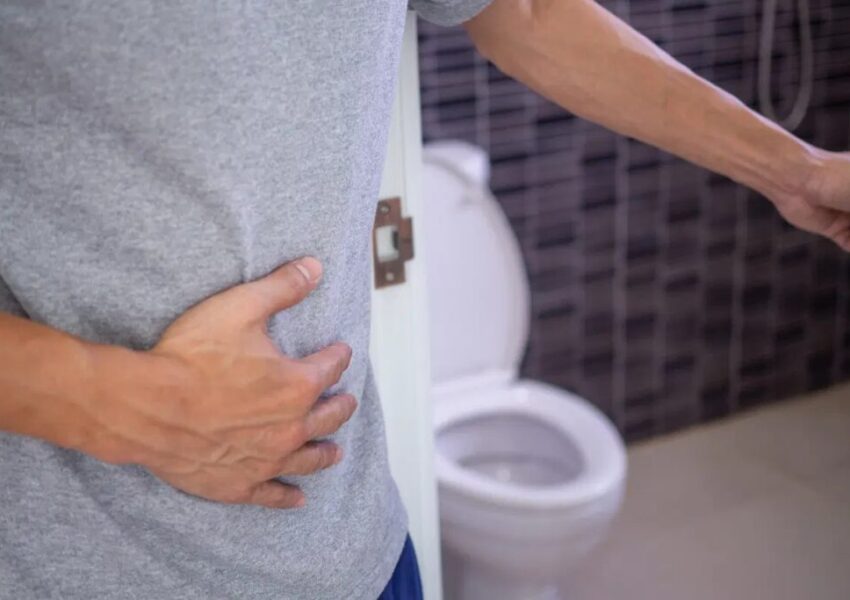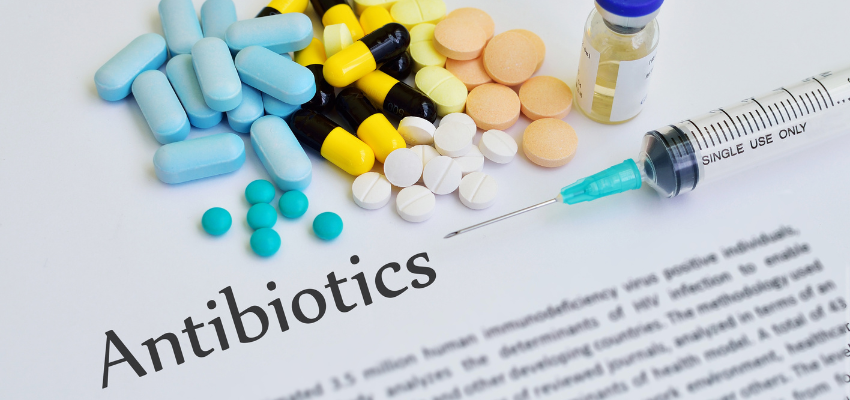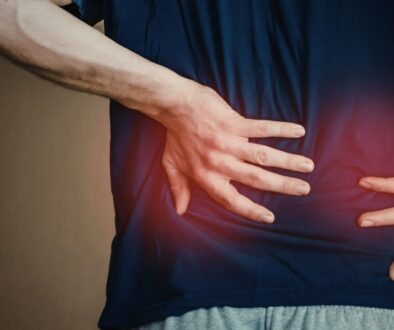Can Antibiotics Cause Constipation? What You Need To Know

Published December 12, 2022
Most people understand that taking excessive medications can lead to minor to severe side effects. Antibiotics, in particular, are infamous for causing gastrointestinal problems like a stomach aches.
Among its typical side effects, diarrhea is one of the most common.
Diarrhea causes an individual to pass stools more frequently, which are watery and loose.
It’s practically the opposite of constipation—a likewise common condition that causes an individual to pass stools less frequently. And usually, the stools of a constipated individual are hard and lumpy.
Due to their contrasting characteristics, one would assume that if diarrhea is a common side effect of antibiotics, constipation can’t possibly be one of its side effects as well. But that’s not entirely true.
Can Antibiotics Cause Constipation?
Yes, research shows that antibiotics can indeed cause constipation. While studies have yet to produce conclusive evidence of why it happens, there are a few speculations from different organizations.
One particular explanation has to do with how antibiotics mess with the body’s gut microbiota.
Why Do Antibiotics Cause Constipation?
Antibiotics are antimicrobial medications that primarily treat and/or prevent bacterial infections in the body. They do so by killing and/or inhibiting the bacteria upon their consumption.
The issue is antibiotics cannot distinguish between good and bad bacteria.
If you know a thing or two about gut microbiota, you’d know that there are good or beneficial bacteria in the gut. Naturally, you would want them to remain in your gut so you can enjoy their benefits.
Unfortunately, antibiotics also kill beneficial bacteria, thereby messing with your body’s gut health.
An unhealthy gut can lead to a variety of issues. Constipation is just one of them. Others include
- diarrhea,
- gas,
- nausea,
- stomach ache,
- stomach upset,
- vomiting, and
- yeast infections.
Some of these side effects are more likely to happen than others. The good news is that your gut microbiota has the inherent ability to regenerate itself. That’s why the side effects are only temporary.
However, damage done by antibiotics can be particularly severe.
How Long Does Antibiotic-Induced Constipation Last?
According to this study, it takes approximately six months for the gut microbiota to recover from the damage done to it by antibiotics. During this timeframe, you may experience other gut-related issues like the ones mentioned earlier. The severity of constipation and the time it takes to pass may vary.

Several factors affect the constipation’s severity and timeframe. The number of antibiotics you took, for instance, will have a significant effect. Alas, you can’t do anything as you’ve already taken the antibiotics.
Another factor that may affect the severity and timeframe of antibiotic-induced constipation is your diet after you start experiencing constipation. Thankfully, this factor is something you can control.
How To Restore Your Gut Microbiota More Quickly
No one wants to deal with the issues that come with an unhealthy gut. A single instance of constipation is enough to make one’s life harder. A frequent occurrence of constipation will surely be incredibly hard.
Therefore, it makes sense that you want to restore your gut microbiota as soon as possible.
In that case, the following tips should help:
1. Follow Your Body’s Natural Circadian Rhythm
The body has an internal clock called the circadian rhythm.
The circadian rhythm is a 24-hour pattern that regulates how the cells in our body behave. Examples of biological functions it can control include body temperature, digestion, and hormone production.
For example, the circadian rhythm is why you get sleepy at night. When it detects that it’s time to sleep, it releases melatonin, a hormone that causes you to be sleepy. The same applies to the gut.
Digestion is directly related to gut health. Therefore, one can argue that the body’s natural circadian rhythm and the gut microbiome are connected. If one is disrupted, the other may get disrupted as well.
As such, letting your body follow its natural circadian rhythm is important. That basically means you must sleep, eat, urinate, and pass tools at the right time. This applies to your other daily routine.
2. Take Probiotics
Probiotics are essentially the opposite of antibiotics, as one would expect from the name. Instead of killing good bacteria, probiotics help increase the number of beneficial bacteria in your gut microbiota.
Therefore, it’s the perfect way to restore your gut microbiota, particularly when the damage is mostly done by antibiotics. Probiotics, in general, are almost always useful in this regard, but there are certain types that are more helpful than others. For restoring your gut, the best probiotics, according to science, are:
- Saccharomyces boulardii,
- Lactobacillus acidophilus,
- Lacticaseibacillus casei,
- Bacillus subtilis, and
- Bacillus clausii.
3. Add High-Fiber Foods to Your Diet
Experts often consider fiber as the best nutrient to maintain a healthy gut. It works well with probiotics because fiber, rather than adding new bacteria, instead boosts the existing bacteria in your gut.
That’s why experts would often advise you to take both prebiotics and probiotics together.
Probiotics add new bacteria, while prebiotics, which are rich in fiber, would support the existing bacteria, including those that came from probiotics. You can also take fiber from foods like:
- broccoli,
- beans,
- green peas,
- lentils,
- raspberries, and
- whole grains.
Of course, you must keep in mind that there’s such a thing called too much fiber, so take it in moderation.
4. Steer Away From Unhealthy Habits
It goes without saying that unhealthy habits like smoking or drinking too much alcohol are something you’d want to avoid if you want to restore your gut microbiota quickly. It’s pretty self-explanatory.
When To Call a Doctor
Upon reading this guide, you may have come to the conclusion that constipation is normal when you take antibiotics. While that’s true to some extent, there are cases where it’s not normal at all, such as when:
- you see blood in your stool,
- you’re also experiencing vomiting, nausea, and abdominal pain, or
- your family has a history of colon cancer.
In any of these cases, it’s advisable to call a doctor as soon as possible.
Benefit From The Latest Advancements In Probiotic Science With Bionaze
Bionaze is a proprietary blend of probiotics proven to promote ear, nose, and throat health, improve digestion, and support your immune system. The active ingredients BLIS K12, and BL-04 are considered among the best probiotics according to science.
Get 25% Off Your First Order when you use BIO25 at checkout!

This Content Has Been Reviewed For Factual Accuracy
This content has undergone thorough fact-checking by our team of internal experts. Learn more about the meticulous editorial standard for our website here.
ADVERTISEMENT

About The Author
Lenard Arceo is an experienced writer who enjoys learning to code in his spare time. He has a fascination with health and nutrition and enjoys sharing his knowledge and research. He is proud of his commitment to communicating factual content that has helped his readers with life changing choices over the years.




